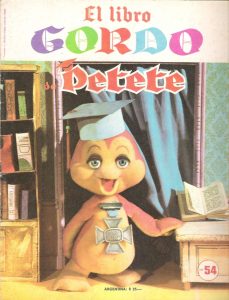The answer to my pop quiz

Hasta la clase que viene
In my previous post, I set up a very simple hypothetical market. Someone buys a vacuum cleaner for BsF 1,200 and prices it at BsF 1,500. The wholesaler informs the vendor that the wholesale price has shot up to BsF 2,200. I asked, are you making a profit?
Many of you had the right idea, but only Manuel had the 100% correct answer. The right answer to this question is: which profit?
There are two types of profits we are interested in: accounting profits, and economic profits.
Accounting profits take into account the actual costs and actual prices of things – even things that don’t have an actual cash cost, like depreciation. In the example above, assuming there are no fixed costs and no other variable costs, assuming your only cost is the wholesale price of the vacuum cleaner, then yes, you’re making a profit of BsF 300 per vacuum cleaner.
But economists are not accountants. We are interested in actual human behavior. We want to know the costs that will affect how firms will behave, and the choices they will end up making.
The economic profit for the firm is -700. The reason is that the firm is selling a vacuum cleaner for BsF 1,500, while its real value (i.e., the value in the marketplace) is BsF 2,200.
Think of it this way: if the person goes ahead and sells the vacuum cleaner at 1,500, it is making less money than the next best alternative. That person could have joined the wholesaler and sold the vacuum cleaner for BsF 2,200 (if it’s profitable for the wholesaler, why wouldn’t it be profitable for the retailer?), but instead chooses to sell at a lower price. The lost opportunity, the lost earning the company could have made, is part of its calculation for “profit.”
Ultimately, a firm in this situation will choose to either raise its price to take into account the actual (i.e. market) cost of the vacuum cleaner, or exit the retail vacuum cleaner business altogether. A rational agent will decide that if he can’t engage in the best possible outcome for his money, he will simply decide to keep his money in the bank (or sell dollars in the black market or whatever). Nobody wants to sell at a loss, even if its accounting “profits” are positive.
This is a basic concept in economics. Without understanding it, it is virtually impossible to handle an economy. I dare say that many people in our government, and yes, our business sector, do not understand this basic precept of economics.
Think of this next time some chavista goon talks about “setting margins for companies” and what the “fair prices” are. If you don’t understand the concept of “margin” or “profit” from an economic point of view (the one that really matters) – how can you possibly aspire to set margins by fiat?
(Side note: Miguel Ángel Santos put it nicely the other day: if a fair price leads to empty shelves, then that isn’t the fair price)
This deeply-embedded economic illiteracy is at the core of many of our social problems. It’s the reason we have Cadivi, cheap oil prices, traffic in Caracas, and even crumbling public schools.
We simply have to overcome this if we are ever to have a chance.
Caracas Chronicles is 100% reader-supported.
We’ve been able to hang on for 22 years in one of the craziest media landscapes in the world. We’ve seen different media outlets in Venezuela (and abroad) closing shop, something we’re looking to avoid at all costs. Your collaboration goes a long way in helping us weather the storm.
Donate




